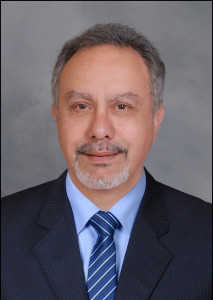Exploitation of Tight & Unconventional Reservoirs
COURSE DESCRIPTION
This course offers the know-how knowledge to make the everyday decision-making become simple: How to plan data acquisition? What kind of data is needed? How to use the data as a reservoir management tool? How to increase ultimate recovery & projects’ NPV’s? The theory concepts will be covered to assist reservoir and exploitation engineers to effectively understand and perform their main tasks; determine oil and gas reserves and maximize hydrocarbon recovery under primary, secondary and tertiary schemes with emphasis on the bottom line results. Other topics such as well test analysis, horizontal well applications, and reservoir drives will be covered. Interesting class examples using actual field data will review. A course hand-out which is an excellent reference will be provided.
COURSE LEVEL
Intermediate
LEARNING OBJECTIVES
- Understand the types of reservoir traps and characteristics
- Learn how rock and fluid properties affect well performance
- Learn industry standard of reserves determination (volumetric /material balance methods)
- How to use well test analysis for reservoir management & production optimization
- Become familiar with waterflood design process and performance evaluation
- Learn why unconventional reservoirs are different from conventional and how to use specific tools to evaluate performance and reserves.
- Become familiar with Hz well and MFHW performance and frac optimization
- Learn from practical case studies
COURSE REGISTRATION/DATE
April 8-12, 2024
Register at:pmg@petromgt.com
This course is aimed at reservoir, petroleum, and exploitation engineers/technologists. Other discipline staff; such as geoscientists
Daily Agenda
Day 1:
- Petroleum geology
- Main elements of petroleum reservoirs
- Coring and SCAL
- Phase envelop
Day 2:
- Reservoir drives and performance
- Reserves classification
- Determination of 0OIP & OGIP; volumetric and material balance methods
- Decline curve analysis
Day 3:
- Hz & slanted well Productivity & optimization
- Well Test analysis techniques
- Flow/buidup & drawdown tests
Day 4:
- Water coning & time to breakthrough
- Introduction to EOR and waterflooding
- Design of waterflood projects
- Estimate of EUR (class problem)
- Monitoring of performance
- Unconventional reservoirs performance
- Characteristics if unconventional
- Review of CBM, shale gas, tight reservoirs
- Use of PTA and RTA (case study)
Day 5:
- Horizontal well applications
- Hz well productivity
- Optimum well spacing
- Engineering & geologic risks
- Well performance (PTA/RTA)
- Modern DCA
- Definition of SRV & CRV
- Reserves determination
 Mr. Saad Ibrahim
Mr. Saad Ibrahim
P. Eng, president of Petro Management Group Ltd.
He has over 35 years of diversified experience in the oil and gas Industry and known as a worldwide highly recognized engineering consultant and a distinguished instructor.
He also completed a post- graduate program with the University of Calgary in Chemical and Petroleum Engineering. The focus of Mr. Ibrahim’s experience lies in the area of Reservoir management, and well test planning/analysis. Mr. Ibrahim is a member of APEGA and SPE.
